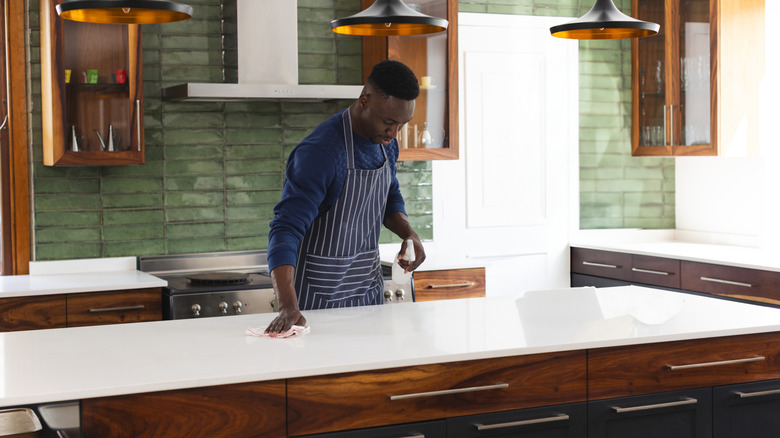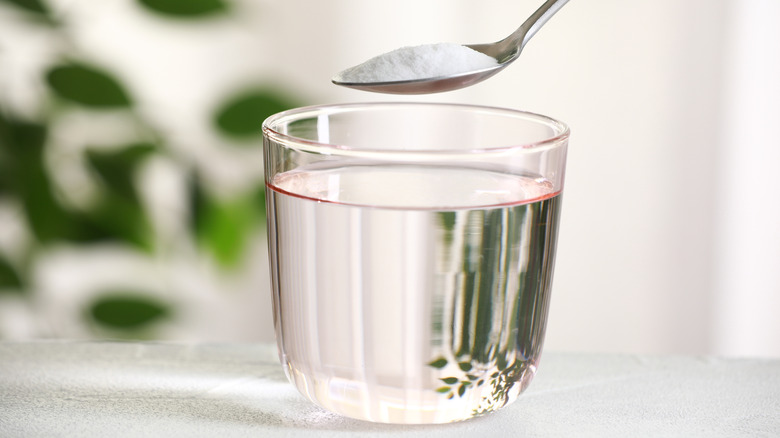The Best Materials For Cleaning Quartz Countertops, Including Stain Removal
We may receive a commission on purchases made from links.
Quartz countertops are known for their natural beauty, as well as their overall durability against damage and everyday messes. On top of this, there are certain types of quartz countertops that are considered best for your home's resale value. Despite their easy maintenance, this doesn't mean you should neglect spills and regular cleanings. The good news is you need very few items to tackle messes and stains on this type of stone. At minimum, you should make sure you have mild dish soap, water, microfiber towels, along with basic pantry items for occasional stains.
For daily cleanings, quartz countertops require very few materials. All you need is mild dish soap, water, and a microfiber cloth or soft sponge. This is important to know before you resort to using common commercial cleaners, as many of these products are much too harsh for this stone. Bleach, ammonia-based products like glass cleaners, and scrubbing agents are all off-limits because they can damage quartz. In some cases, they may even make your countertops less stain-resistant. You should also avoid the temptation of using wire brushes or abrasive sponges in an attempt to scrub your quartz countertops, as this can damage their luster.
In some cases, you might consider the occasional use of a commercial product specifically designed for quartz countertops. One top-rated example is Weiman Quartz Countertop Cleaner and Polish, which cleans and protects quartz from everyday damage. Be sure to follow all manufacturer instructions before use.
What to use when removing stains from quartz countertops
Although quartz is considered stain-resistant, it's still possible for stains to develop on these countertops. It turns out the best stain-removing materials for quartz countertops may already be in your pantry or medicine cabinet. First, consider vinegar as a versatile cleaning tool. For quartz, mix equal parts of the vinegar with plain water in a spray bottle, and spray directly over the stain before wiping it with a clean microfiber cloth in a circular motion. This method purportedly works best for soap and hard water stains. If you're dealing with stickier and tougher stains, such as glue or marker, consider using rubbing alcohol. To use this method, pour a little rubbing alcohol onto a clean towel or cotton ball. Follow each of these methods up with plain water and a separate towel to remove residue, then dry the countertop with another cloth.
Another technique is to use baking soda, as it has naturally abrasive qualities without being too harsh for stone. This may also be among the clever ways you can use baking soda for a cleaner kitchen. For oil-based stains, combine baking soda with equal parts water and rub it into the stain with a clean cloth. Alternatively, you can use equal parts baking soda with hydrogen peroxide to remove water stains. In both cases, make sure you follow up with clean water and dry the area before repeating, if necessary. Stains that persist after using these techniques may require professional removal to get rid of them without damaging the stone.

